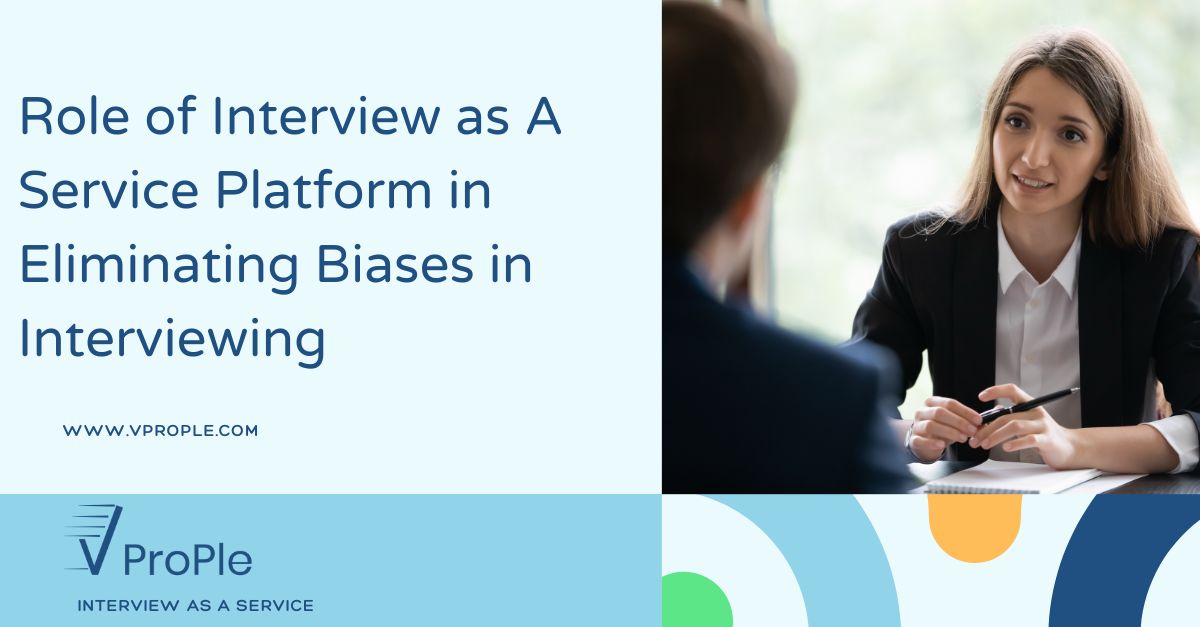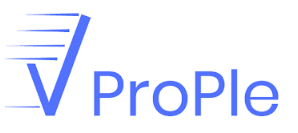This website use cookies to help you have a superior and more relevant browsing experience on the website.
Role of Interview as A Service Platform in Eliminating Biases in Interviewing
-
02/06/2024

Interview as a service platforms are becoming increasingly popular among companies these days. The reason? Unconscious biases in the hiring process! Yes, you read that right. No one wants to admit it, but hiring managers and recruiters make a lot of hiring decisions out of biases.
These decisions are not at all related to how someone will perform on the job. Instead, they are solely based on someone’s traits such as looks, social perception and personality. That is why many companies that do not want to fall victim to the halo or horn effect and other biases in the interviewing process rely on the interviewing platform to evaluate candidates.
Let us dive deep into this blog and discuss bias in hiring in detail. We will also discuss how you can avoid it using a technical interview platform.
What Is Interview Bias?
Interview bias occurs when the interviewer evaluates a candidate on unspoken criteria and not on their skills and competencies. For example, an interviewer may reject a candidate based on the fact that they did not greet properly, kept their hands crossed or did not make enough eye contact during the interview.
This kind of unconscious bias makes the interview less objective and it often results in bad hiring decisions and higher turnover rates. Moreover, it also has a negative impact on the DEI efforts companies make to build a diverse team and become more inclusive.
|
Did you know? According to Zippia, 48% of hiring managers agree that bias affects their candidate choice and women applications are 30% less likely to receive the interview call. |
What Are Types of Bias in Interviews?
Although there are many types of biases in the interviewing process, here are the three most common ones:
Stereotyping
Stereotyping involves making assumptions and opinions about how people from a particular region, sex, age, race, etc appear, act, think, feel or respond. For example, assuming that a female would perform better in a teaching job rather than a construction job.
First Impression
Sometimes, the interviewer makes decisions based on the first impression of the candidate. Simply put, the first impression of the candidate can leave a lasting impression on the interviewer, and this bias may increase or decrease the candidate’s chances of selection.
Halo/Horn Effect
When the interviewer favors the candidate because of one good trait like his/her personality, it is called the halo effect. In the same way, when the interviewer disqualifies a candidate based on one negative trait like body language, it is called the horn effect. This halo and horn effect is also a type of interview bias that happens quite frequently in traditional interviews.
Now that we have discussed bias in hiring and types of bias, now is the time to learn how interview as a service platforms help companies eliminate these biases.
How Does the Interview as A Service Platform Eliminate Bias in Hiring?
Here are a few ways in which interviewing platforms help companies overcome the halo and horn effect during the interviewing process:
Diverse Interview Panel
If you involve people from diverse backgrounds in the interviewing and hiring decision making process, you have more chances to eliminate unconscious bias. That is why interview as a service platform has access to many interview experts from diverse backgrounds.
It ensures that candidates are evaluated solely on their capabilities and performance in the online interview assessment and not anything else such as personal appearance, gender, race, socioeconomic background, non-verbal cues, etc.
Consistent evaluation criteria
The best interviewing platform like VProPle offers a consistent interview and online interview assessment process to ensure all candidates are treated equally and given the opportunity to demonstrate their skills and expertise. Companies can even give interview outsourcing companies a list of questions they want to ask the candidates to analyze specific skills.
It will ultimately create a scoring system to help interview experts rank candidates fairly and not make hiring decisions after interrogating candidates about their personal lives and backgrounds during the interview.
Feedback mechanisms
The interview as a service providers use their interviewing platform to record every interview with the candidate’s consent and creates a feedback report that gives the complete idea of the candidate’s capabilities and areas for improvement.
This interview recording and feedback report helps in expert evaluation and decision-making at the next level. Companies can also use it to identify and address any instances of bias in the interviewing process.
Also Read: How to Choose the Right Technical Screening Service Provider for Your Business
Conclusion
You can only eliminate interview bias by taking proactive measures and implementing various strategies while using innovative solutions like the interview as a service platform. These platforms will enable you to follow streamlined and fair interview and evaluation practices.
However, if you do not know which technical interview platform to choose, worry not and trust VProPle! Our platform helps you foster an inclusive interview environment, promote fair technical interview assessments and unlock the true potential of potential candidates. Do not hesitate to contact us if you wish to learn more about our platform and services.
Frequently Asked Questions (FAQs)
Q1- What causes the halo and horn effect?
Ans. Hiring companies usually do not have the time and resources to properly get to know candidates, collect and analyze all their information and make informed hiring decisions.
Instead, HRs and recruiters often fall back on cognitive biases and the halo and horn effect to speed up recruitment. Although this can happen during any hiring stage, it mostly happens during the interviewing stage.
Q2- How do biases and stereotypes in interview impact recruitment and the workplace?
Ans. Once recruiters form a positive first impression of someone, they may treat those candidates with more kindness in the further hiring rounds- asking simple questions and engaging with them in a friendly way. This will result in the recruiters ignoring the potential red flags the candidate might have, such as lack of relevant skills, not enough work experience, etc.
And this preferential behavior can continue even after the candidate is hired. Such candidates might be given more learning and skill development opportunities or they might get promoted quickly. All these things will ultimately result in less employee productivity, reduced retention rates and a negative workplace culture.
Q3- What additional steps can I take to eliminate biases in hiring?
Ans. In addition to using interview as a service platform, here are some more steps you can take to eliminate biases in your hiring process:
- Introduce comprehensive interviewer training programs as they will equip interviewers with the necessary skills and awareness to mitigate unconscious biases.
- Provide interviewers with well-defined interview guides with a set of questions. It will act as a roadmap to maintain consistency and ensure interviewers evaluate all candidates effectively based on their skills, experience and qualifications.
- Consider monitoring and giving feedback on the interview process. View interview recordings and online interview assessment results to address any emerging biases.


